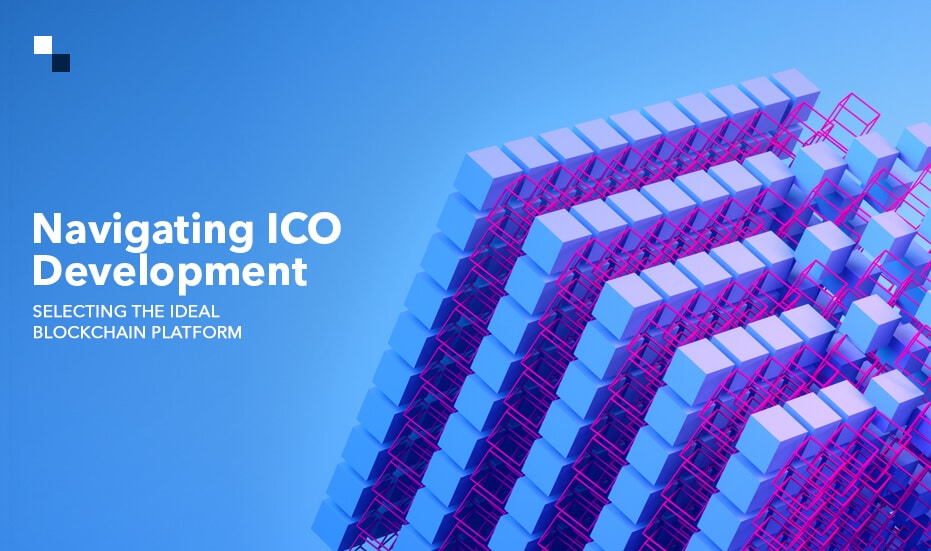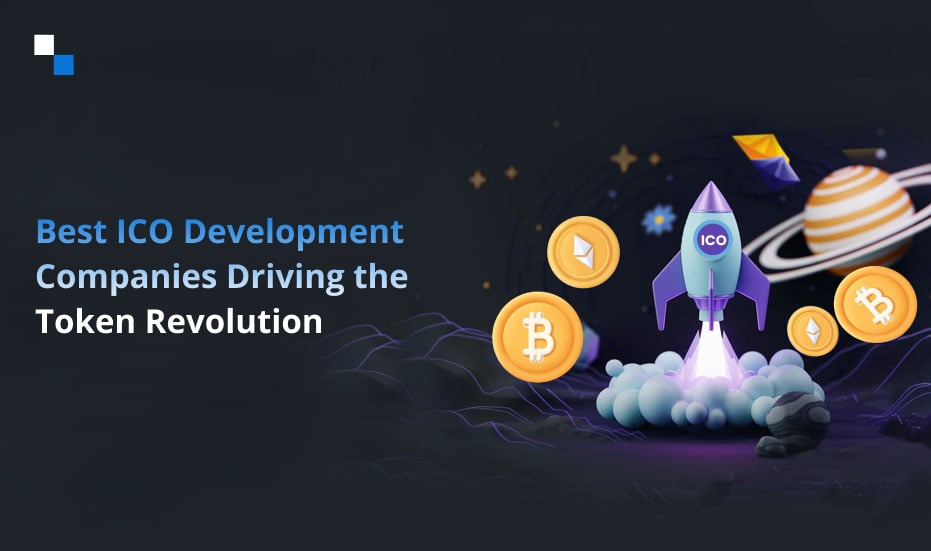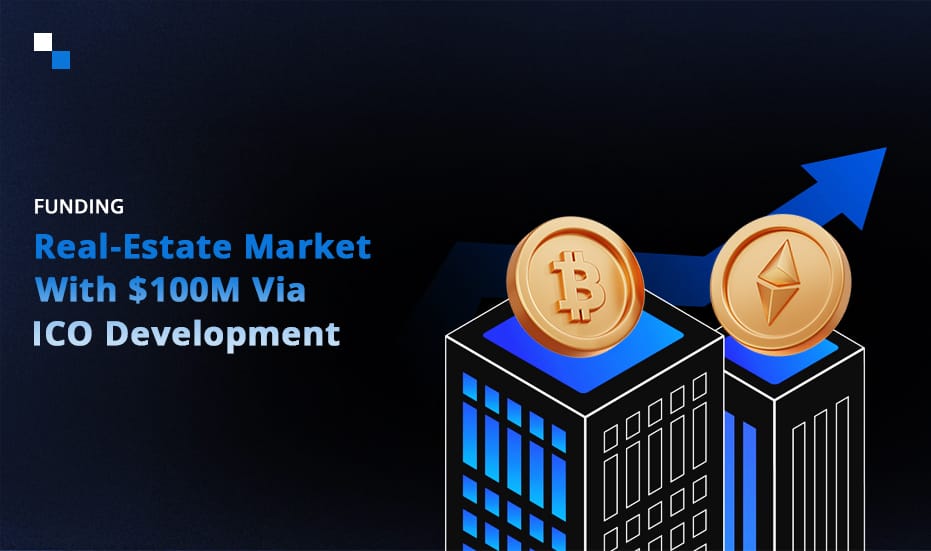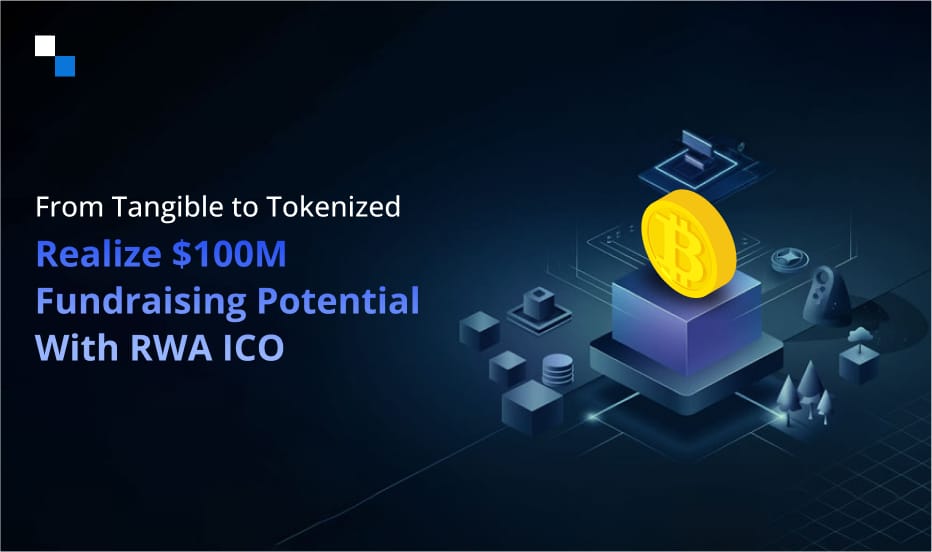Earlier, fundraising was done with the support of crowdfunding websites or through registered organizations, but it used to be a complex procedure and involved a prolonged waiting time. Evolution of blockchain technology and cryptocurrencies has changed the scenario. Nowadays businesses and entrepreneurs seeking to raise funds prefer doing it with the help of an ICO development company.
An ICO is a crowdfunding mechanism where a company issues its own digital tokens or coins in exchange for investments, typically in the form of cryptocurrencies. These tokens can then be traded on cryptocurrency exchanges or used to access the products or services of the company.
However, the success of an ICO hinges on several factors, and one of the most crucial decisions is the choice of the underlying blockchain platform. With numerous blockchain platforms available, each with its own unique features, strengths, and weaknesses, selecting the right one can be a daunting task.
Today, we’ll explore the key considerations that an ICO token development company needs to consider while choosing the ideal blockchain platform for your ICO development.
1. Understanding Your Project’s Requirements
Before delving into the specifics of blockchain platforms, it’s essential to have a clear understanding of your project’s requirements. You must describe what are the primary goals and objectives of your Initial Coin Offerings to the ICO development company you have hired. Also mention whether you aiming for high transaction throughput, enhanced security, or strong decentralization. Different blockchain platforms cater to different needs, and identifying your project’s priorities will help narrow down your options.
2. Token Functionality
Let the developers be informed about the purpose your token will serve within the ecosystem. Discuss, if it will be a utility token granting access to services, a security token representing ownership, or a governance token allowing voting rights. Different platforms offer varying degrees of support for these functionalities.
3. Scalability and Transaction Speed
Scalability is one of the most significant challenges faced by many blockchain platforms. As the number of users and transactions grows, the network can become congested, leading to slow transaction times and increased fees. When evaluating blockchain platforms for your ICO, consider their scalability solutions and transaction speeds. Platforms like Ethereum, while popular, have faced scalability issues in the past, prompting the development of layer-2 scaling solutions like Polygon (formerly Matic) and Optimism.
4. Smart Contract Functionality
An ICO token development company should be apt in drafting smart contracts that play a crucial role in automating the token distribution process, managing token sales, and implementing other functionalities. Don’t forget, it’s crucial to choose a blockchain platform with robust smart contract capabilities. Ethereum is widely recognized for its advanced smart contract functionality. However, other platforms like Cardano, Tezos, and Polkadot also offer smart contract capabilities.
5. Security and Decentralization
Security and decentralization are two critical aspects of blockchain technology. A secure and decentralized platform ensures that your ICO is resistant to hacking attempts, censorship, and other malicious activities. Platforms like Bitcoin and Ethereum are known for their high levels of decentralization, making them less susceptible to centralized control or manipulation. However, newer platforms like Solana, Avalanche, and Algorand claim to offer improved security and decentralization through novel consensus mechanisms.
6. Interoperability and Cross-Chain Compatibility
As the blockchain space continues to evolve, the ability to interact and transfer value across different blockchain networks becomes increasingly important. Interoperability and cross-chain compatibility can open up new opportunities for your ICO project, enabling seamless integration with other platforms and services. Platforms like Polkadot and Cosmos are designed to facilitate cross-chain communication and interoperability, while others, like Ethereum, are exploring solutions like sidechains and bridges.
7. Regulatory Compliance
Depending on your target markets and jurisdictions, regulatory compliance may be a critical consideration when choosing a blockchain platform for your ICO development. Some platforms have implemented measures to comply with specific regulations, such as Know Your Customer (KYC) and Anti-Money Laundering (AML) requirements. Make sure that the ICO development company you are consulting allows to access legal and regulatory experts who can help you navigate the complex landscape of crypto regulations and ensure your ICO project remains compliant.
8. Cost and Adoption
Finally, it’s essential to consider the cost and adoption rates of the blockchain platform you choose. While some platforms may offer advanced features and capabilities, they may also come with higher transaction fees or require significant resources for development and deployment. Additionally, platforms with a larger user base and higher adoption rates may provide more liquidity and exposure for your ICO tokens.

Popular Blockchain Platforms for ICO Development
Here are some of the well established platforms that have emerged as favorites for ICO development:
1. Ethereum
The OG of smart contracts, Ethereum boasts a vast developer community and extensive support for token creation. However, scalability limitations and high transaction fees can be bottlenecks, especially for high-volume ICOs.
2. Solana
Solana stands out with its impressive transaction speeds and minimal fees, making it ideal for fast-paced ICOs with anticipated high transaction volume. Its focus on scalability ensures a smooth user experience for investors even as your project grows.
3. Binance Smart Chain
A cost-effective alternative to Ethereum, BSC offers faster transaction speeds and lower fees. This attracts projects seeking a budget-friendly option. However, as a younger platform, BSC’s long-term viability remains to be seen.
4. EOS
Known for its high transaction throughput and scalability, EOS is a potential option for projects anticipating significant user activity. However, its developer community is smaller compared to Ethereum, which can impact access to resources and support.
5. Tezos
This platform prioritizes security and governance, making it well-suited for projects requiring a high degree of regulatory compliance. Tezos’ focus on formal verification of smart contracts adds an extra layer of security.
6. Cardano
Built with scalability and security in mind, Cardano is another promising option. It utilizes a unique layered architecture to ensure smooth operation as the project attracts more users.
7. Tron
Offering high throughput and low fees, Tron appeals to developers looking to build decentralized applications (DApps) with a user-friendly experience.
8. Avalanche
Known for its sub-second finality and custom blockchain creation, Avalanche provides a platform suited for high-performance applications and DeFi projects.
The Right Choice for Your Project’s Future
There’s no one-size-fits-all answer when choosing a blockchain platform for your ICO. Let the ICO token development company carefully evaluate your project’s needs, research your target markets, and explore the functionalities and limitations of each platform. Remember, the chosen platform will be the foundation upon which your ICO thrives.
Wrapping Up
The blockchain platform is the foundation of an ICO project, and it plays a significant role in its success. There are various blockchain platforms available, each with its own unique features and capabilities. The choice of a blockchain platform depends on the project’s specific requirements, such as scalability, security, and smart contract functionality.
Antier, an experienced ICO development company will not only help choose the right blockchain platform wisely but also ensure a smooth launch and position your project for long-term success. All you need to do is to discuss your idea, specify your requirements, and stay in touch with the team of developers. Rest everything will be done expertly by the professionals without troubling you. Get in touch with us now!





